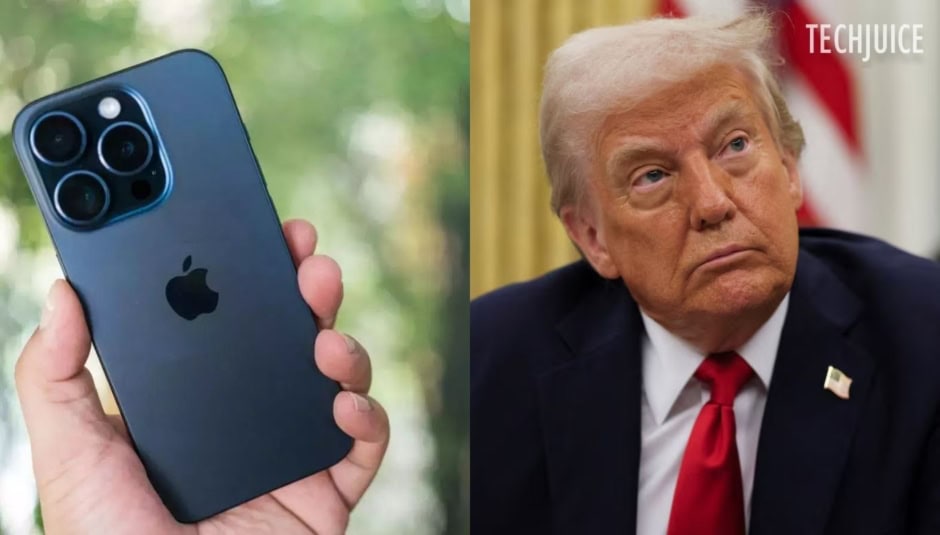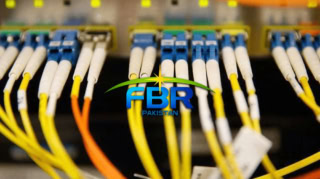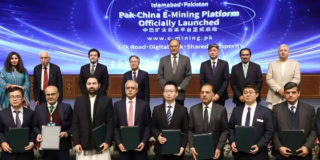Washington / Florida: Despite concerns surrounding U.S. President Donald Trump’s aggressive new tariff policies, consumers in Pakistan can breathe a sigh of relief — iPhones, laptops, and other tech gadgets are not about to see a price surge. The decision spares companies like Apple, Nvidia, Dell, and Microsoft from increased costs and supply chain disruptions amid an intensifying trade war with Beijing.
The U.S. Customs and Border Protection released a list of tariff codes now excluded from the steep import duties, retroactive to April 5, 2025. These exemptions cover 20 major product categories, including broad classifications like computers, laptops, disk drives, memory chips, semiconductor devices, and flat-panel displays. The exemption also applies to Trump’s general 10% baseline tariffs on products from most countries, further easing import costs for tech firms that manufacture outside China, such as Apple’s operations in India and Taiwan.
Trump’s decision, made without a detailed explanation but revealed late Friday, follows increasing pressure from U.S. tech giants concerned about skyrocketing prices due to the tariffs. Analysts had warned that the cost of a high-end iPhone could surge from $1,599 to as much as $2,300 under the 125% tariff rate imposed on Chinese goods.
Dan Ives, Wedbush Securities’ Head of Technology Research, called the announcement a “game-changer” for tech investors. “Smartphones and chips being excluded is the most bullish news we could have heard this weekend,” Ives noted. “Big Tech firms can breathe a huge sigh of relief.”
The U.S. imported $41.7 billion worth of smartphones and $33.1 billion worth of laptops from China in 2024, according to U.S. Census Bureau data. Analysts believe that such sweeping tariffs would have dealt a significant blow to the consumer electronics market, already strained by inflation.
While these exemptions apply to Trump’s “reciprocal tariffs,” which recently surged to 125% for Chinese goods, a separate 20% tariff on electronics linked to the U.S. fentanyl crisis remains in effect.
Speaking aboard Air Force One on Saturday, Trump refrained from offering specifics but hinted at a broader economic strategy: “We’re taking in a lot of money. As a country, we’re taking in a lot of money,” he said, promising more details on Monday.
White House: Exemptions to Encourage U.S. Manufacturing
The White House stated the exemptions are part of a long-term push to bring critical tech manufacturing back to the United States. “President Trump has made it clear America cannot rely on China to manufacture semiconductors, chips, smartphones, and laptops,” said White House Press Secretary Karoline Leavitt. “Companies like Apple and Nvidia are now accelerating their plans to onshore production.”
Reports suggest Apple recently chartered flights to transport over 600 tons of India-produced iPhones to the U.S. to circumvent the tariffs. India and Vietnam have emerged as top alternatives to China as companies diversify their supply chains.
Despite this relief, Trump confirmed that China remains an exception in his broader tariff pause strategy. While tariffs on 57 trading partners and the EU were temporarily frozen at 10%, China’s tariffs were raised from 125% to a dramatic 145% following Beijing’s retaliatory actions.
Trump’s aggressive tariff policy, part of his core economic platform, has faced criticism even within his party, with concerns about inflation and economic instability. Financial markets reacted with volatility; while U.S. stocks edged higher, gold hit record highs and the dollar fell sharply.
Trump has defended his approach, stating, “I believe something positive is going to come out of this,” and emphasized his good relationship with Chinese President Xi Jinping. Nonetheless, a new national security investigation into the semiconductor supply chain is reportedly in the works, potentially laying the groundwork for future tariff measures.
As the trade war continues to escalate, the temporary relief for tech firms may only be a brief reprieve in what analysts warn is a volatile and uncertain global trade environment.

 4 min read
4 min read


















